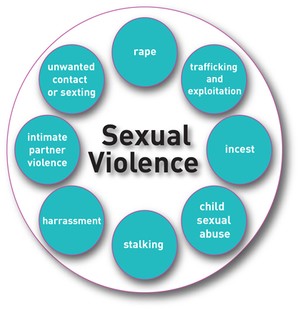A workshop at the Churchwide Gathering of Presbyterian Women in Minneapolis, Minn., focused on sharing strategies for successfully working to address sexual violence against women and girls.
The Rev. Dr. Tony Jones addressed participants by asking, “We all can talk about violence against women as if it is some arbitrary thing that happens to some stranger, but what we are really talking about… what we need to be talking about… is ending men’s violence against women. What are we doing about that piece? How are we addressing that?”
Jones, director of “Project Unity U.S.A.” in North Carolina, joined Sandi Thompson-Royer, mission co-worker with the Presbyterian Church (U.S.A.), to discuss some of the most pressing issues the faith community is facing when it comes to addressing sexual violence against women and girls, and to share proven strategies for successfully addressing this often-overlooked issue.
According to Jones, it’s critical that men in the church first examine their male privilege, and ask themselves how they can use that privilege to work toward creating a safe space for women and girls in the community.
“It’s important that as a man, I continue to ask myself, and ask other men in the church, ‘What can I do, what can we do, to be more aware?’” Jones adds, “I also believe that I have a mandate as a child of God to do this work, to help those who may not be able to help themselves. Today, when one in four women in our country may face sexual violence in her lifetime, I know that could touch my life. It could touch my wife, my daughters, my sisters. I want to be able to look at my children and know that when they ask me what I’ve done, I can answer that question.”
Jones encouraged attendees to move beyond simply inviting men to events that focus on addressing sexual violence against women, and to engage them in conversations about the impact that such events have on them.
“If you’re going to engage in a white ribbon campaign, or a Walk a Mile in Her Shoes event, by all means, invite the men in your life to come,” he said. “But then set a time after that event that you can bring those men back together to talk about how the event made them feel, to talk about what they saw. Creating space to have conversations opens up an opportunity to expand the conversation, dig deeper into the issue and to share bits of information and education, explaining different ways that men can continue to engage.”
Thompson-Royer notes the importance of churches facilitating conversations about sexual violence. “Many churches are not talking about these things. But we have to. The church is often a place where people go to help.” She added, “It’s also critical that we examine ourselves—explore how we feel about this issue—before we get involved. We need to understand our own attitudes and experiences with this as we prepare to engage with those who have different experiences than we do, and we need to understand how to engage with them in a non-judgmental way in order to make a difference.”
The panelists also indicated the importance of understanding the context of the issue, and the need for the church to find partners in the community to work with on addressing the issue.
“The faith community can work to build a network of agencies that work together to ensure that resources are available; that someone is available to pick up the phone if a victim calls a hotline number, etc.,” said Thompson-Royer. “Partnership and collaboration is so important. Working to end sexual violence against women isn’t something that a single entity can do alone.”
The workshop, End Violence Against Women: Proven Strategies for Systemic Change, was presented at the 2015 Churchwide Gathering of Presbyterian Women by Shannon Beck, reconciliation catalyst, and Meinda Uriarte, area coordinator for the Asia/Pacific area in Presbyterian World Mission in the Presbyterian Church (U.S.A.).
-----
To learn more about the work Presbyterian World Mission is doing to end sexual violence against women and how you or your congregation can get involved, please visit www.pcusa.org/reconciliation.

